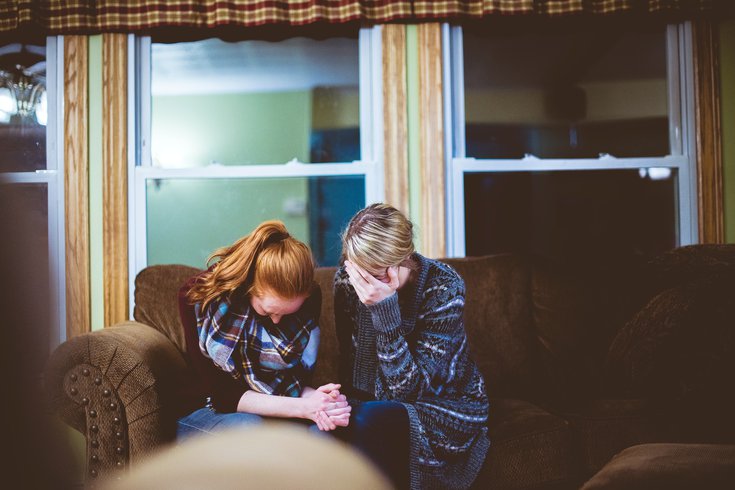
July 18, 2022
 Ben White/Unsplash
Ben White/Unsplash
The Philadelphia Department of Public Health is expanding its bereavement counseling services for children and teens ages 4 to 21 who have lost a caregiver or loved one to a fatal overdose. The program, called Philly HEALS, has worked with 3,000 people through advocacy and peer support since 2019.
The Philadelphia Department of Public Health is expanding its free bereavement services for children and teens impacted by the sudden death of a loved one or caregiver from an overdose as part of its efforts to enhance its harm reduction programming.
Philly HEALs was established in 2019 as a way to offer group and individual peer support to those who've lost a loved one to overdose. Since its creation, the program has helped more than 3,000 people address their feelings through free grief counseling sessions, advocacy work and community events.
To kick off the new services, Philly HEALs hosted a workshop with caregivers of youth who have lost a parent or loved one to a fatal overdose Tuesday. Attendees learned how children and teens typically express feelings of grief, focusing on child development.
Though the workshop is over, people can still refer children and teens to the HEALs program for counseling if they have lost a loved one within the last 12 months. Each person's loved one must have been seen by the Philadelphia Medical Examiner's Office within the last year in order to be eligible.
"Grief counseling is important for children and adolescents because it helps them to process complex emotions such as confusion, fear, sadness and anger," said Dr. Andrew Best, director of Philly's Substance Use Prevention and Harm Reduction division. "This service creates a safe environment where their feelings are validated, and they can honor the loss of their loved ones. This counseling is also important because it provides the family members and caregivers of children who are grieving with much needed support, especially if they are grieving as well."
In 2020, Philadelphia saw 1,214 overdose deaths, the second highest number in the city's history, according to the Drug Enforcement Administration. Though overdose deaths seemingly peaked in 2017 and then declined for several years, the CVID-19 pandemic resulted in a surge of overdoses and deaths.
Of those deaths, 81% included fentanyl, a powerful, synthetic opioid that has been found in many drugs, including counterfeit pills, heroin, cocaine and methamphetamine.
Losing a loved one or caregiver to fatal overdose particularly can be life-changing and devastating for children and teens, as they lose their adult attachment.
If the adult was their primary caregiver, the child also may have to deal with the court and child welfare system, which may increase their risk of mental health issues like depression or anxiety, according to the Department of Public Health.
"It (grief counseling) starts with really getting a sense of where they're at, what their understanding is of what happened, and then working with the child to figure out how they are most comfortable expressing their emotions," Laura Vargas, Philly HEALs program manager told KYW. "With adults, it's more talking face to face. There's lots of different modalities that we use but they're very cognitive. For children, that might not work so it may be more so getting them to engage, building that relationship."
There are several healthy ways to deal with the loss of a loved one, including acknowledging the stages of grief and leaning on a support system. For those who have been impacted by fatal overdose, building that safety net of support is important.
Many of Philly HEALs programs are virtual, allowing for a more accessible system of bereavement support.
The program also provides grief counseling to people ages 18 and above, hosts peer group sessions for adults, and grief workshops for those seeking out educational support for topics related to grief.